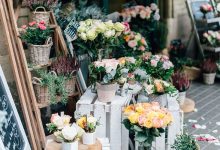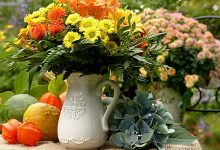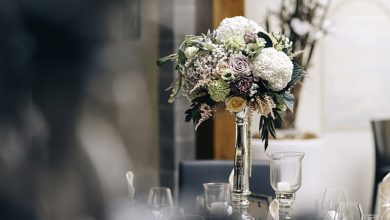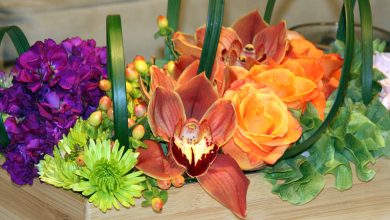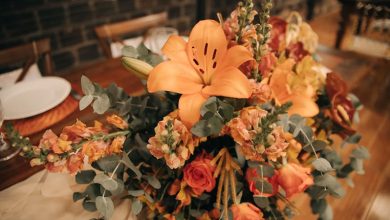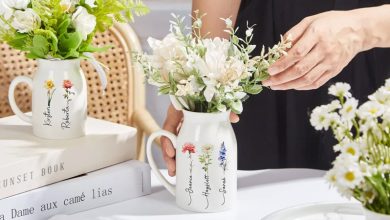The 10 Best Plants for Living Room Feng Shui
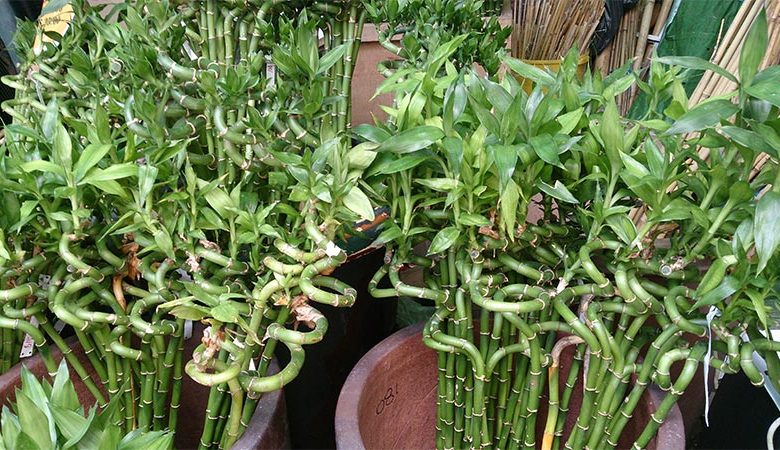
When designing a harmonious and tranquil living space, incorporating the principles of Feng Shui can transform your home into a sanctuary of positive energy. One of the simplest and most effective ways to enhance the Feng Shui of your living room is through the careful selection of plants.
The best plants for living room Feng Shui not only bring life and vitality into the space but also purify the air and create a soothing ambiance that promotes relaxation and well-being. Plants like the graceful Peace Lily, with its elegant white blooms, symbolize purity and peace, making it an ideal choice for fostering harmony within your living room.
The Lucky Bamboo, often associated with good fortune and prosperity, is another popular choice, believed to attract positive energy and balance. The robust Snake Plant, known for its air-purifying qualities, also holds the title of one of the best plants for living room Feng Shui, as it promotes resilience and strength.
Moreover, the lush and vibrant Pothos, with its trailing vines, encourages growth and adaptability, creating a dynamic yet serene environment. By thoughtfully selecting these plants, you not only beautify your living room but also invite a sense of calm and positivity, aligning your space with the nurturing energies of nature.
Read More: The 10 Best Artificial Large Indoor Plants for Your Home
Introduction to Feng Shui and Plants
Feng Shui, an ancient Chinese practice, is dedicated to harmonizing the environment to enhance the flow of energy, or “Chi,” in our lives. Central to this philosophy is the idea that our surroundings profoundly impact our well-being, prosperity, and overall balance.
One of the most accessible and effective ways to integrate Feng Shui principles into your home is through the strategic use of plants. Plants, with their vibrant life force and natural beauty, are more than just decorative elements; they are essential tools for cultivating positive energy and creating a serene living space.
By selecting the right plants and placing them thoughtfully, you can transform your living room into a sanctuary of tranquility and abundance. Each plant carries its unique symbolism and benefits, making them powerful allies in enhancing the Feng Shui of your home.
In this article, we will explore the Best Plants for Living Room Feng Shui and discover how these botanical wonders can bring balance, prosperity, and a sense of peace to your living environment.
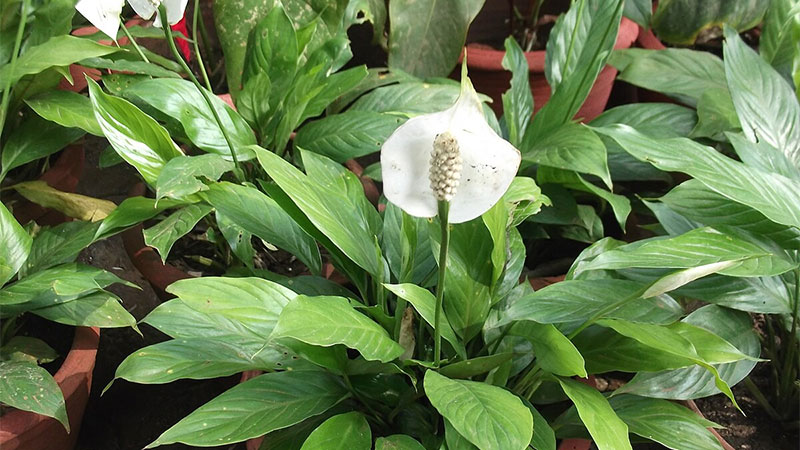
The 10 Best Plants for Living Room Feng Shui
Enhancing the energy of your living space with plants is a key principle in Feng Shui, a practice that promotes harmony and balance. The Best Plants for Living Room Feng Shui are chosen not just for their beauty, but for their ability to purify the air, invite positive energy, and create a peaceful atmosphere.
Each plant has its own unique qualities that contribute to a harmonious living environment, making your living room not only visually appealing but also energetically balanced. Here’s a detailed look at the ten best plants to consider for your living room Feng Shui.
1. Peace Lily (Spathiphyllum)
The Peace Lily is revered in Feng Shui for its ability to neutralize harmful indoor pollutants and enhance the flow of positive energy. Its elegant white flowers symbolize purity and tranquility, making it an excellent choice for promoting peace and harmony in your living room. Place it in a shaded corner where it can thrive without direct sunlight.
Read More: Plants for Boho Living Room: Top 10 Stylish Choices
2. Lucky Bamboo (Dracaena Sanderiana)
Lucky Bamboo is synonymous with good fortune and prosperity in Feng Shui. It’s often used to attract wealth and positive energy. The number of stalks has different meanings: three for happiness, five for health, and eight for wealth. This plant is low-maintenance and can be grown in water, making it a versatile addition to your living room.
3. Snake Plant (Sansevieria Trifasciata)
Also known as the “Mother-in-Law’s Tongue,” the Snake Plant is one of the best air-purifying plants, according to NASA. In Feng Shui, it’s considered a protective plant that wards off negative energy. Its upright, sword-like leaves symbolize resilience and strength, making it a powerful addition to your living space.
4. Money Tree (Pachira Aquatica)
The Money Tree is a popular Feng Shui plant believed to bring prosperity and financial success. It’s often braided, which is said to trap fortune within its folds. The Money Tree thrives in indirect light and needs occasional watering, making it a low-maintenance and attractive addition to your living room.
5. Pothos (Epipremnum Aureum)
Pothos, with its cascading vines and heart-shaped leaves, is a symbol of perseverance and adaptability. This hardy plant is known for its air-purifying qualities and is perfect for bringing positive energy into your living room. Its trailing vines can be placed on shelves or hung in baskets to enhance the flow of Chi (energy).
6. Jade Plant (Crassula Ovata)
The Jade Plant is often associated with wealth and prosperity in Feng Shui. Its thick, round leaves resemble coins, symbolizing financial success. Place it in the southeast corner of your living room, known as the wealth corner, to maximize its energy. The Jade Plant requires minimal care, making it a practical and symbolic choice.
7. Ficus (Ficus Benjamina)
Ficus, or the Weeping Fig, is a large, leafy plant that brings a sense of calm and stability to a room. In Feng Shui, it’s believed to cleanse the air and promote harmony. Ficus thrives in bright, indirect light and should be placed in a spacious area of your living room where it can grow freely.
8. Boston Fern (Nephrolepis Exaltata)
Boston Ferns are known for their lush, feathery fronds that add a touch of nature to any space. In Feng Shui, they are used to soften sharp corners and edges, which are thought to disrupt the flow of energy. Place this plant in a hanging basket or on a high shelf to allow its fronds to cascade and create a calming effect.
9. Orchid (Orchidaceae)
Orchids are associated with fertility, abundance, and beauty in Feng Shui. They are believed to enhance relationships and improve energy flow in the home. Their vibrant colors and delicate blooms add elegance to any living room, making them a stylish and beneficial choice for Feng Shui.
10. Aloe Vera (Aloe Barbadensis Miller)
Aloe Vera is not only known for its healing properties but also for its ability to attract positive energy and ward off bad vibes. In Feng Shui, it’s seen as a protector plant that shields against negative energy. Aloe Vera thrives in bright light and requires minimal watering, making it both a functional and symbolic addition to your living room.
These Best Plants for Living Room Feng Shui not only beautify your space but also enhance the flow of positive energy, creating a harmonious environment that nurtures your well-being and promotes prosperity.
Advantages of Plants for Living Room Feng Shui
Incorporating plants into your living room according to Feng Shui principles offers a variety of benefits that extend beyond mere aesthetics.
Here are some of the key advantages:
1. Improved Air Quality
Plants act as natural air purifiers, filtering out toxins and releasing oxygen. This creates a healthier and more refreshing indoor environment, which is a core aspect of Feng Shui’s focus on nurturing positive energy.
Read More: Top 10 Ideas Hanging Planters in Living Room
2. Enhanced Positive Energy Flow
According to Feng Shui, plants help to balance and enhance the flow of Chi, or vital energy, within a space. By strategically placing plants in your living room, you can encourage the smooth circulation of positive energy, leading to a more harmonious and invigorating atmosphere.
3. Increased Tranquility and Stress Reduction
The presence of plants has been shown to reduce stress and create a calming effect. In Feng Shui, this translates to a more peaceful and relaxing environment, which can improve your overall well-being and mental clarity.
4. Symbolic Representation of Prosperity
Many plants used in Feng Shui, such as the Lucky Bamboo and Money Tree, are associated with abundance and prosperity. Incorporating these plants into your living room can attract positive financial energy and success.
5. Enhanced Aesthetic Appeal
Plants bring a touch of nature and vibrancy to your living room, contributing to its overall beauty. They add color, texture, and a sense of liveliness that enhances the visual appeal and creates a more inviting space.
6. Softening of Sharp Angles
In Feng Shui, sharp angles and corners are believed to disrupt the flow of energy. Plants, particularly those with rounded or trailing leaves, can soften these harsh angles and promote a smoother energy flow, improving the overall harmony of the space.
7. Increased Connection with Nature
Bringing plants into your living room fosters a deeper connection with nature, which is an essential element of Feng Shui. This connection can enhance your mood, creativity, and sense of well-being by integrating the natural world into your daily life.
8. Improved Focus and Productivity
Plants can enhance concentration and productivity by creating a more balanced and stimulating environment. This is particularly beneficial in spaces where you work or engage in creative activities, aligning with Feng Shui principles of promoting clarity and focus.
9. Symbolic Protection and Good Fortune
Certain plants are believed to offer protective qualities and attract good fortune. For example, the Snake Plant is thought to guard against negative energy, while the Jade Plant is linked to wealth and success. Including these plants in your living room can provide symbolic protection and encourage a positive atmosphere.
10. Low Maintenance and Versatility
Many Feng Shui-friendly plants are easy to care for and adaptable to various light conditions, making them a practical choice for enhancing your living room. Their low maintenance requirements ensure that you can enjoy their benefits without significant effort.
Incorporating plants into your living room not only enhances its aesthetic appeal but also aligns with the principles of Feng Shui, creating a space that nurtures positive energy, well-being, and prosperity.
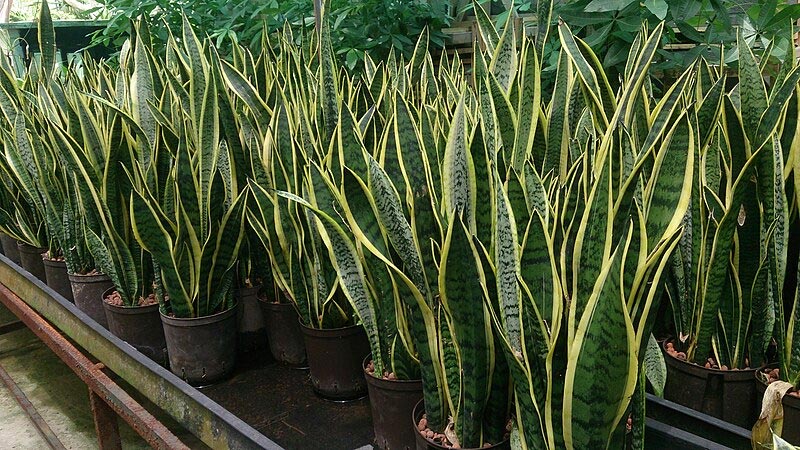
Conclusion
Incorporating the Best Plants for Living Room Feng Shui into your home is more than just a decorative choice; it’s a meaningful step toward creating a space that radiates positive energy and tranquility. These carefully selected plants serve as living symbols of harmony, prosperity, and well-being, each bringing its unique set of benefits to your living room.
From the purifying Peace Lily to the fortune-bringing Lucky Bamboo, every plant contributes to a balanced and serene atmosphere that enhances your overall quality of life. By integrating these plants into your décor, you invite a vibrant energy that not only beautifies your space but also nurtures your spirit.
The lush foliage, calming colors, and air-purifying qualities of these plants work in synergy to transform your living room into a sanctuary of peace and positive flow. Embracing the principles of Feng Shui through these botanical wonders fosters a harmonious environment where you can thrive, relax, and enjoy the soothing presence of nature.
Ultimately, the Best Plants for Living Room Feng Shui are more than just green additions to your home—they are integral elements that cultivate a serene and prosperous living space, enriching both your surroundings and your life.
